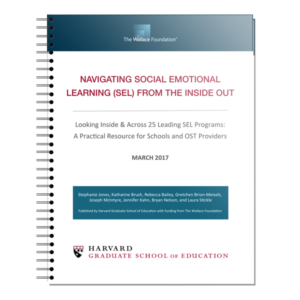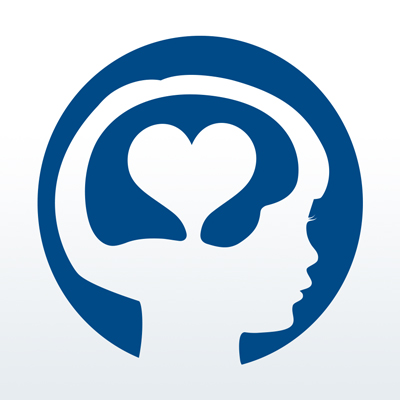Conscious Discipline Receives High Ratings in 8 out of 10 Categories in Wallace Foundation Study Published by Harvard’s Graduate School of Education
Jones, S., Brush, K., Bailey, R., Brion-Miesels, G., McIntyre, J., Kahn, J., Nelson, B., & Stickle, L. (2017). Navigating SEL from the Inside Out: Looking inside and across 25 leading SEL programs: A practical resource for schools and OST providers.
The purpose of this report is to describe key features of social and emotional learning (SEL) program goals and provide easy to understand summaries of well-known SEL programs in order to support providers in selecting a program. In comparing key components of SEL, Conscious Discipline received high ratings in 8 of 10 categories.
Type of report: Synthesis report, not original research
Summary: The specific skills targeted by SEL programs include cognitive regulation, emotional processes, interpersonal skills, character and mindset. Programs in this report, including Conscious Discipline, were determined to have met the following criteria:
- Sufficient evidence to support impact on SEL
- Widely implemented
- Well-aligned with the theory and practice of social and emotional learning
- Accessible materials and available information about implementation
- Clear scope and sequence and well-defined set of activities and supports
- Covers the K-5 elementary age span
Compared to 25 other SEL programs, Conscious Discipline is one of only three programs that focuses three-quarters or more of their content on Emotional Processes (specifically Emotion Knowledge/Expression and Emotion/Behavior Regulation), and one of 13 programs that focuses more than half the program content on Interpersonal Skills.
The review also concludes that Conscious Discipline relies on developmentally appropriate instructional methods such as skills practice, songs/chants and visual display, and uses formal discussion less so than many other SEL programs.
In comparing key components of SEL programs, Conscious Discipline received high ratings in 8 of 10 categories.
The Conscious Discipline profile in the report (pp.222-231) gives a detailed description of the content, scope, and sequence of the program and how these elements compare to other SEL programs. The authors note that “Conscious Discipline provides an array of behavior management strategies and classroom structures that teachers can use to turn everyday situations into learning opportunities.”
The report notes that, compared to the other 24 programs in the review:
- Conscious Discipline offers the second greatest focus on emotional processes.
- Conscious Discipline is one of only three programs reviewed to offer extensive climate supports.
- Conscious Discipline is one of six programs to offer professional development opportunities that focus explicitly on building adult social-emotional competence, and one of only two programs to offer tools for assessing positive changes in adult behaviors or skills.
The report looked at one impact study and two descriptive studies of Conscious Discipline[1]. The report verified that research on Conscious Discipline shows reductions in aggression, hyperactivity and conduct problems.
[1] Caldarella, P., Page, N. W., & Gunter, L. (2012); Hoffman, L. L., Hutchinson, C. J., & Reiss, E. (2005); Hoffman, L. L., Hutchinson, C. J., & Reiss, E. (2009).
Upcoming Events
- Conscious Discipline Institute in Phoenix, AZ: Summer Educator Event
- Conscious Discipline Institute in Kansas City, MO: Summer Educator Event
- Conscious Discipline Institute in Philadelphia, PA: Summer Educator Event
- Anger and Rage: Planning Our Response: Education Event in Orlando, FL
- Conscious Discipline Institute in Asheville, NC: Summer Educator Event
- Elevate Conscious Discipline: LEVEL UP and Leave a Legacy: Educator Conference in Orlando





